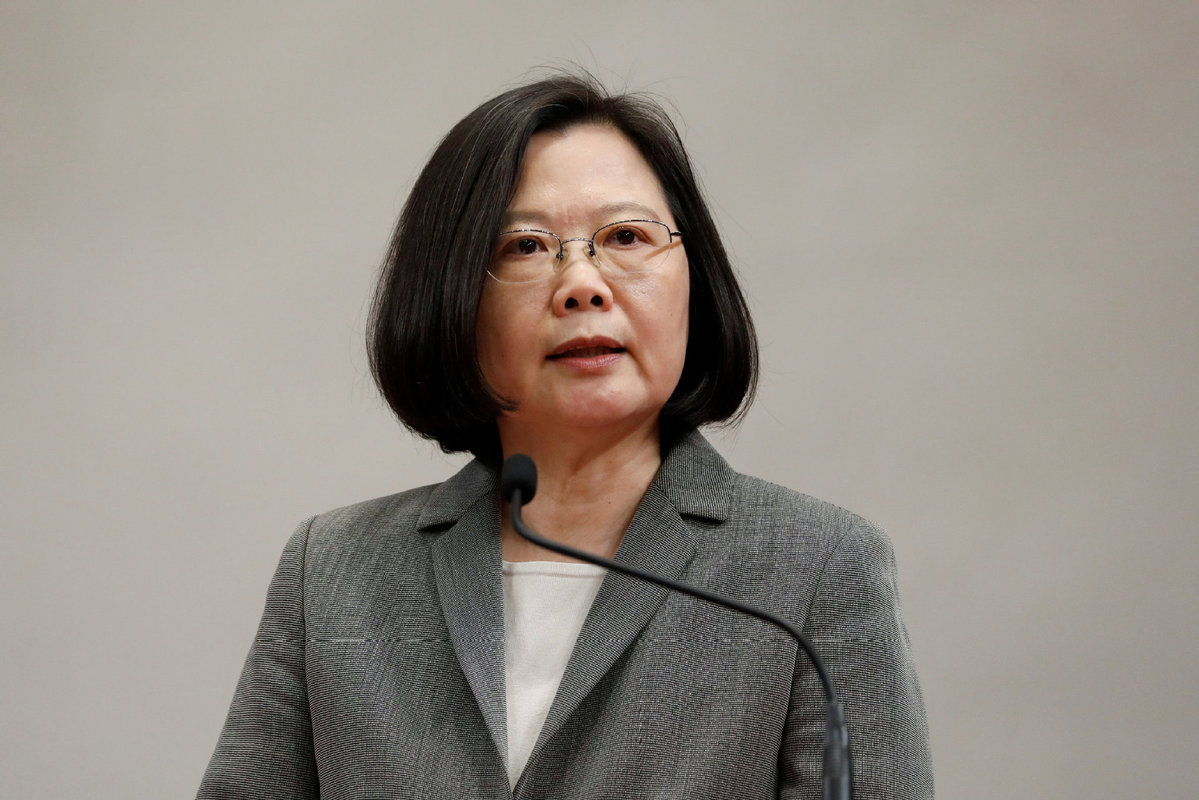Tsai's speech offers nothing new for cross-Straits relations


Taiwan leader Tsai Ing-wen held a so-called "national security" meeting on Tuesday, as China's Lunar New Year is around the corner, and gave a speech thereafter.
Tsai said Taiwan's relations with the United States have remained solid despite the change in US administrations, and she has asked her "national security" team to maintain close contact with the new administration, the Congress, the opposition party and non-governmental institutions.
Tsai said peace and stability across the Taiwan Straits has upgraded from cross-Straits relations to an Asia-Pacific regional focus and even a global focus. She asked Taiwan residents to be confident in Taiwan's safety.
Tsai also said the key to maintaining peace across the Taiwan Straits lies in the hands of the mainland.
After this speech, I have one question: Why did Tsai choose this moment for it?
According to my observation, the Taiwan society has felt a threat to their security due to the escalating military confrontation between the mainland and Taiwan in recent years. The ruling Democratic Progressive Party also supported Donald Trump during the US election, causing worries about possible changes of US policies towards Taiwan in the new administration.
When speaking about cross-Straits relations, she had nothing new to say but attributed the responsibility for confrontation and possible changes on Taiwan Straits security to the mainland, as usual.
In fact, the current grim situation of cross-Straits relations is entirely caused by the DPP authorities.
Since Tsai came to power, the DPP authorities refused to recognize the 1992 Consensus reached by the two sides, tossing aside the foundation of peaceful development of cross-Straits relations, and attempted to communicate under the framework of "one China one Taiwan".
What's more, the DPP authorities carried out de-sinicization and secessionist activities, revising the so-called "national security acts" and "anti-infiltration law" to obstruct exchanges between the two sides. At the same time, they collude with anti-China forces, acting as a political pawn of the US to suppress the mainland and provoke discord.
These acts have directly jeopardized the mainland's core interests of sovereignty, security and development. They aggravate the principal contradiction between the two sides and escalate confrontations in public opinion, policies and the military field.
Thus, Tsai's call for "meaningful dialogue under the principle of equal dignity" and "peace and stability between the two sides" is rank hypocrisy.
The mainland will not accept the DPP authorities' false position of "one China one Taiwan", nor will it accept their violation of its core interests or dialogue under the framework of "one China one Taiwan".
As we know, Taiwan's security lies in the peaceful development of cross-Straits relations. It can't be guaranteed by so-called "Taiwan-US relations", relations between Taiwan and Asia-Pacific countries and militarizing the island. Only when Taiwan authorities go back to the position of "Taiwan and the mainland belong to the same China" and stop secessionist activities can the two sides reconcile. A future of reconciliation and dialogue between the two sides and the Taiwan Straits' security is in the hands of the DPP authorities.
The author is deputy director of the Taiwan Research Center at Xiamen University.
- Beijing courts boost efforts to resolve livelihood-related cases
- Reminder tips from Weifang police spark buzz on Xiaohongshu
- Former head of national tobacco body stands trial on bribery charges
- China warns DPP's attempt to seek 'Taiwan independence' will be futile
- Consistent progress seen in environmental protection
- Former head of China's State Tobacco Monopoly stands trial for graft, abuse of power





































